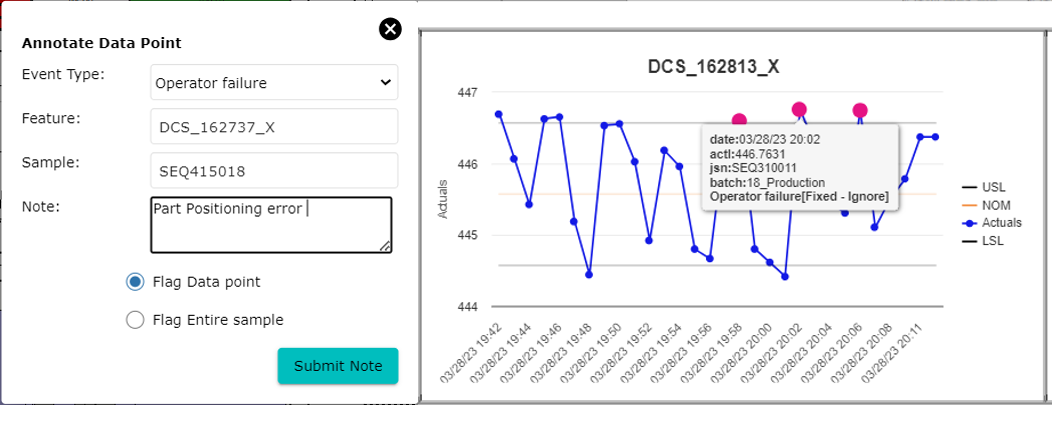
Explore the crucial role of accountability in manufacturing, ensuring high-quality products and efficient processes.
Accountability is the cornerstone of quality control in manufacturing. It ensures that every part and process is meticulously monitored and documented, allowing for a clear understanding of where issues may arise. When a problem occurs, knowing which machine, operator, or shift was responsible is crucial for effective root cause analysis. Without this level of detail, it becomes nearly impossible to implement improvements or prevent future issues.

In addition to facilitating problem-solving, accountability also supports compliance with quality plan requirements. By keeping track of every step in the manufacturing process, manufacturers can ensure that they meet industry standards and regulatory requirements, thereby maintaining their reputation for delivering high-quality products.
Quality Data Management (QDM) systems play a pivotal role in enhancing accountability through real-time monitoring. These systems provide up-to-the-minute information on product quality, making it easier to detect deviations from specifications as soon as they occur. This immediate feedback loop allows for quick corrective actions, minimizing the risk of producing defective parts.

Real-time monitoring not only improves the precision of manufacturing processes but also boosts responsiveness. By continuously tracking part and process data, QDM systems enable manufacturers to address issues before they escalate, ensuring that the production line remains efficient and productive.
Accountability is instrumental in driving process improvement and identifying bottlenecks. When every step of the manufacturing process is monitored and recorded, it becomes easier to pinpoint areas that are causing delays or inefficiencies. This detailed insight allows manufacturers to make informed decisions about where to focus their improvement efforts.

Furthermore, accountability helps in tracking the effectiveness of these improvements. By comparing data from before and after changes are implemented, manufacturers can assess whether their strategies are working and make further adjustments as needed. This continuous loop of monitoring and improvement leads to more streamlined and efficient manufacturing processes.
Automated alerts are a critical component of accountability in manufacturing. These alerts notify stakeholders when parts go outside specifications or begin trending towards an out-of-spec situation. By catching these issues early, automated alerts prevent small problems from becoming significant errors that could halt production or result in defective products.

The ability to quickly address potential issues not only keeps the production line running smoothly but also reduces the need for costly rework or scrap. This proactive approach to risk management ensures that manufacturers can maintain high standards of quality while minimizing waste and inefficiencies.
Accountability is not a one-time effort but a continuous process that spans the entire manufacturing lifecycle. From initial design and prototyping to full-scale production and quality assurance, maintaining detailed records and real-time monitoring at every stage ensures that manufacturers can consistently deliver high-quality products.
By fostering a culture of accountability, manufacturers can drive continuous improvement. This involves regularly reviewing process data, identifying areas for enhancement, and implementing changes that lead to better performance and higher quality. In this way, accountability becomes a driving force behind ongoing innovation and excellence in manufacturing.
Meet us at IMTS to see QDMWEB in action, and get a free login to try it yourself!
These Stories on 3DCS
No Comments Yet
Let us know what you think